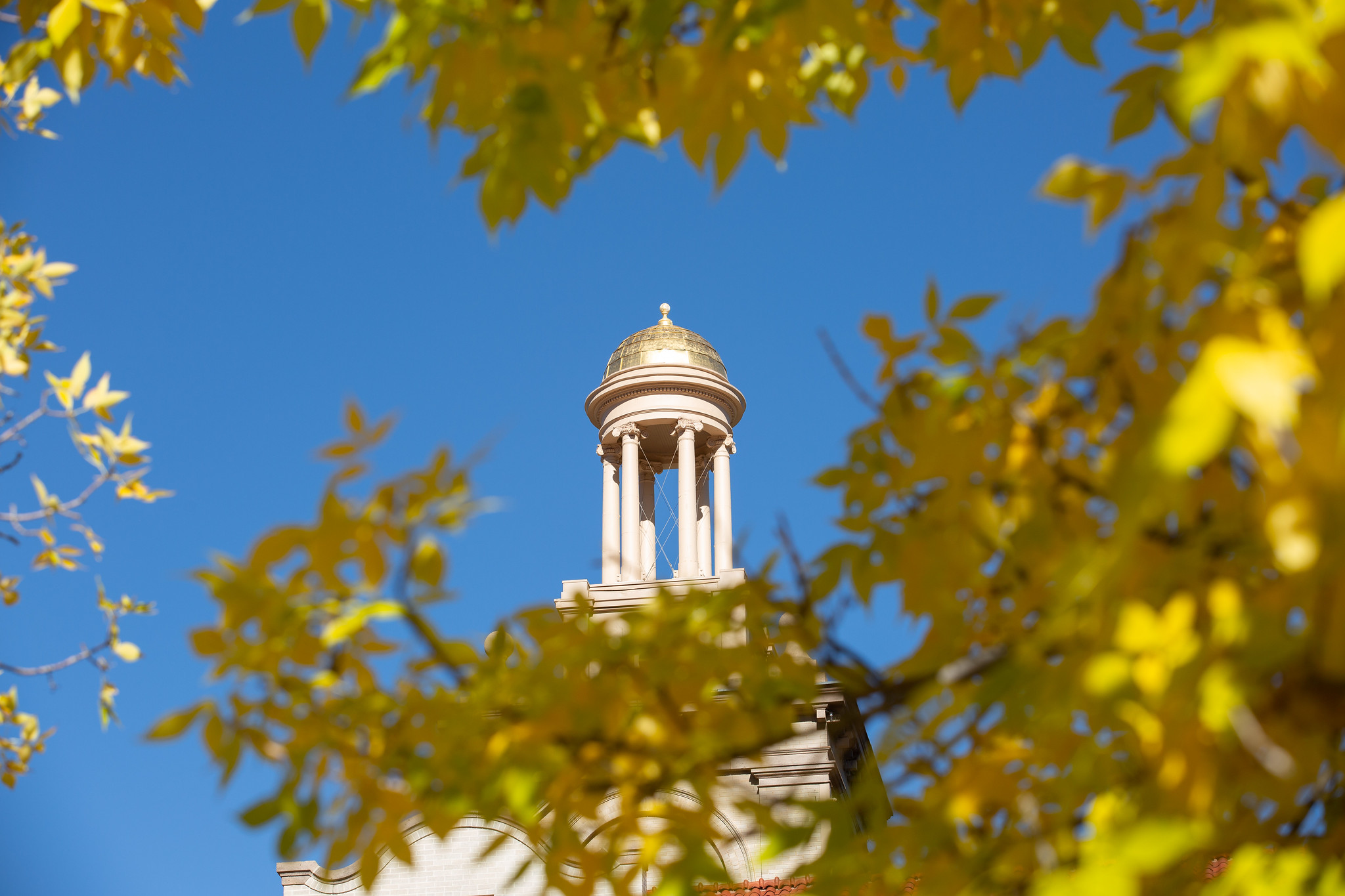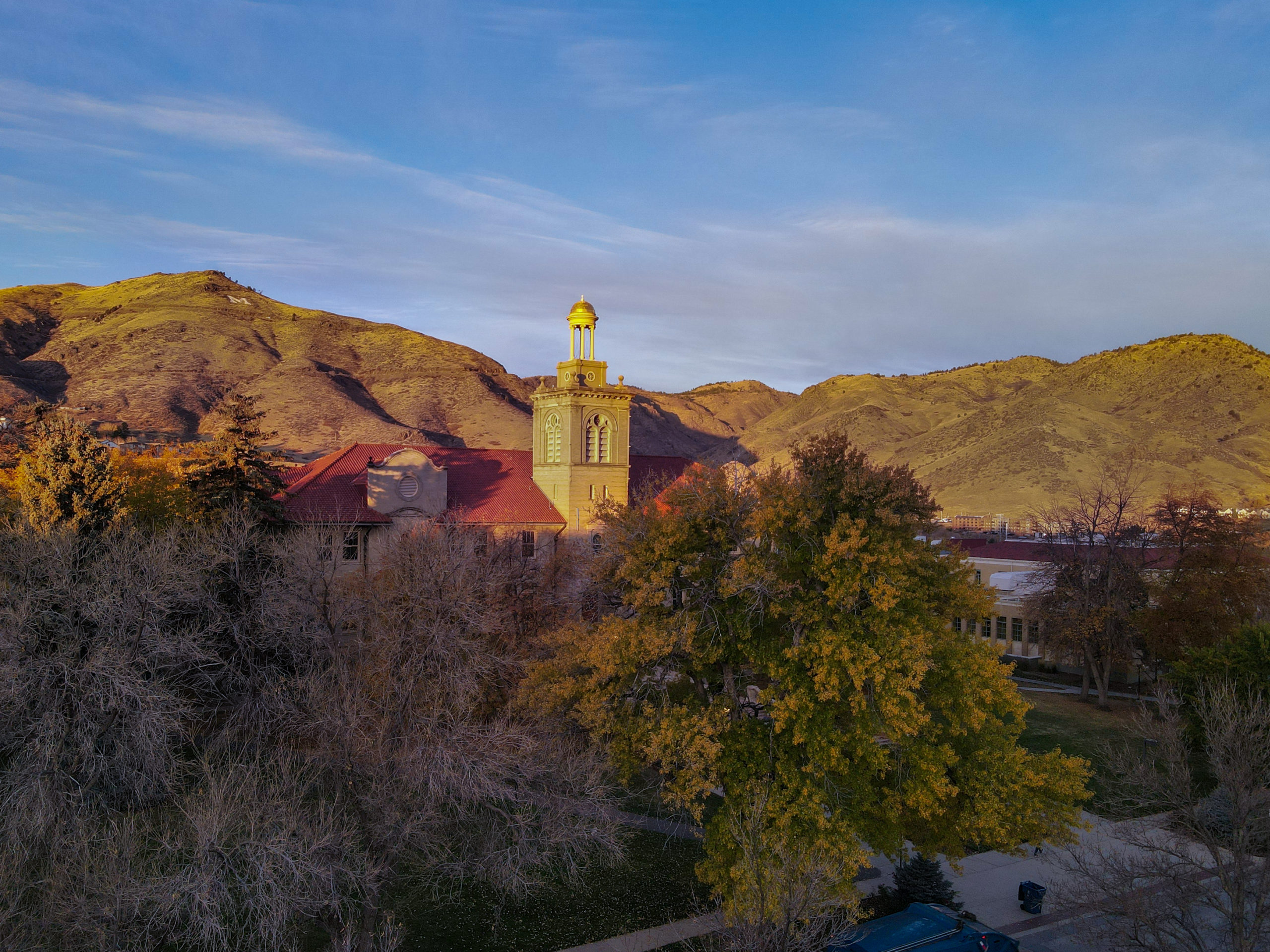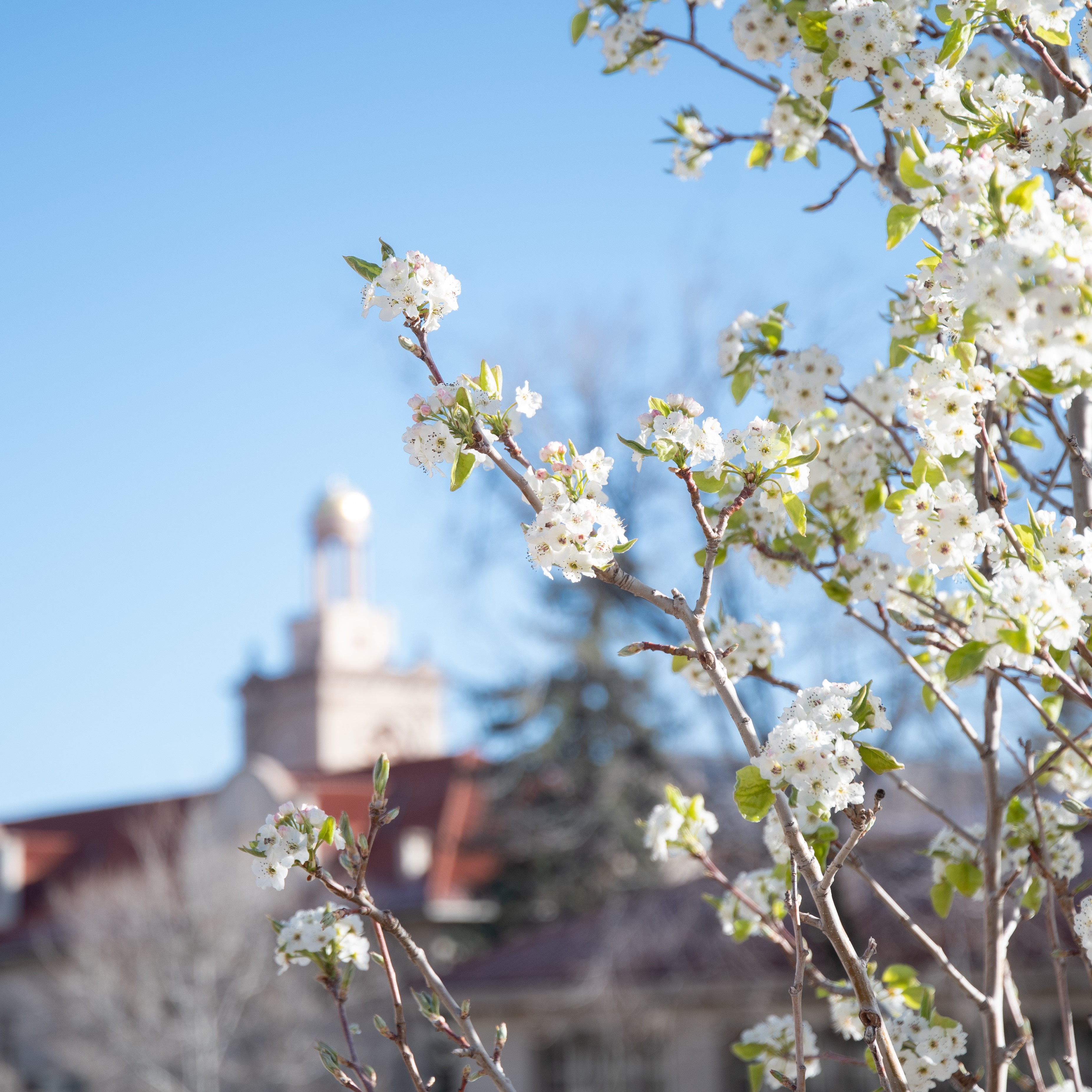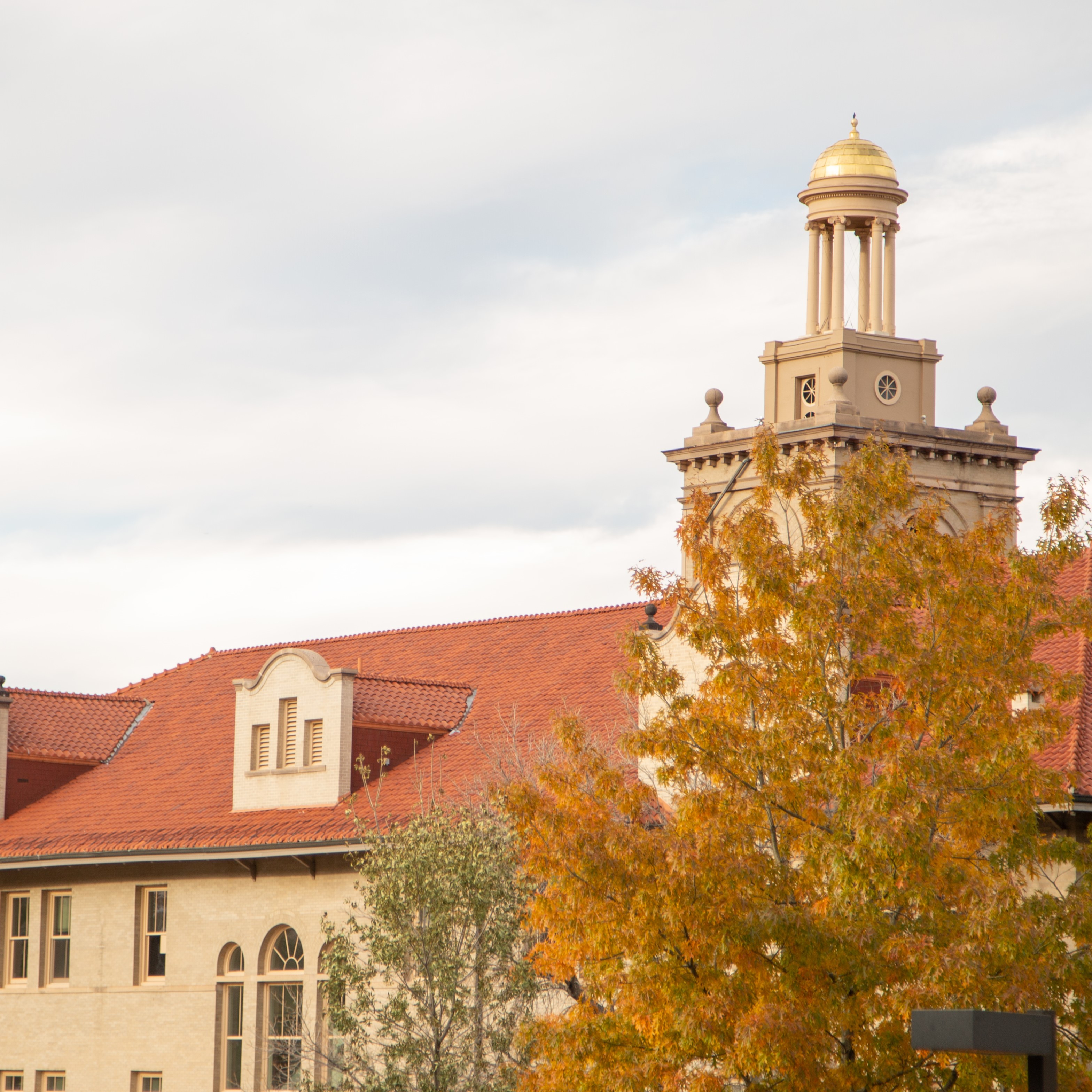The Office of Undergraduate Research Scholars & UHS Presents
The 2024 Spring Undergraduate Research Symposium
April 17-18, 2024
Spring 2024 Symposium Recap
Congratulations to the 2024 Spring Undergraduate Research Symposium oral and poster winners!
Oral Presentation Winners:
#1 | Claire Nelson, Senior, Chemistry | Mentor(s): Ramya Kumar | Cell Culture Substrates Functionalized with Glycosaminoglycan-Mimetic Polymer Brushes to Augment Human Mesenchymal Stem Cell Self-Renewal
#2 Tie | Cailyn Smith, Junior, Computer Science | Mentor(s): Tom Williams | Evaluating the Effects of Performative Autonomy for Robots with Communication Latency
#2 Tie | Stephanie Morrall, Senior, QBE | Mentor(s): Chelsea Johansen, Nikki Farnsworth | The Role of Extracellular Matrix Stiffness in Modulating Ca2+ Dynamics and Insulin Secretion in Mouse Islets
#3 Tie | Madie Addis, Senior, CBE | Mentor(s): Amy Landis | Global Material Flow Analysis for Macro and Micro Plastics with Emphasis on Plastics Lost to the Environment
#3 Tie | Roya Akrami, First Year, Electrical Engineering | Mentor(s): Yamuna Phal | Quantum Cascade Laser-Based Vibrational Circular Dichroism
Poster Presentation Winners:
#1 |Jordan Lam, Sophomore, Computer Science; Danny Nguyen, Sophomore, Computer Science | Mentor(s): Sebnem Duzgun, Doga Demirkan | Generative Artificial Intelligence for Enhanced Situational Understanding in Virtual Reality
#2 Tie | Audrey Faricy, Junior, Physics | Mentor(s): Carolyn Koh, Reuben Collins | Silicon Clathrates in Photovoltaics Solar Cells
#2 Tie | Camille Neuder, Junior, Physics | Mentor(s): Mark Florida | Optimization of Shallow Geothermal Energy
#2 Tie | Zhuoyi Wang, Junior, Computer Science; Nathan Woo, Junior, Computer Science | Mentor(s): Eric Mayotte, Sonja Mayotte | Reconstructing Ultra-High-Energy Particle Cascades with Deep Learning Methods
First Year Honorable Mention | Caitlyn Castellion, First Year, Chemistry | Mentor(s): Ramya Kumar, Claire Nelson | Bioinstructive Polymer Brush to Promote Signaling Cell Proliferation
#First Year Honorable Mention | Dylan Kuiken, First Year, Chemistry | Mentor(s): Svitlana Pylypenko, Jayson Foster | X-ray Photoelectron Spectroscopy Analysis of Degradation in Polymer Electrolyte Membrane Fuel Cell Catalyst Layers



What do Undergraduate Researchers have to say About the Symposium?
“Having the chance to present at a symposium with my peers helped me become a better presenter, bolstered my relationship with my advisor, and gave me opportunities to communicate the value of my research to a large audience. I left the symposium a more confident and experienced researcher.”
“The Mines Undergraduate Research Symposium gave me the opportunity to practice my communication skills and learn how to talk about my research effectively to people from a wide variety of fields. In addition, I truly enjoyed seeing everyone else’s research projects and exploring how one issue can be tackled and studied through a variety of approaches. Being a part of the symposium was a really amazing experience, and I’m looking forward to the next one!”
“I really enjoyed participating in the Undergraduate Research Symposium. It allowed me to represent my research project in an inclusive and educative way. It gave me the opportunity to learn how to share my technical knowledge with others. It was interesting to learn about other people’s research project, network with them, and find parallels between our research. I would recommend presenting at Symposiums to any researcher who wants to share their passion with others and learn how to communicate technical research.”
2024 Presenter, Judge & Volunteer Registration Form
The registration form for Judging, Volunteering and Presenting is currently open.
2024 Keynote Address RSVP
The keynote address, Intentional Design for Including Historically Underrepresented Excluded Minority Students in High Impact Practices, by Dr. Buffie Longmire-Avital will take place on Wednesday, April 17th, from 12 pm -1 pm in the Student Center Ballrooms D&E.
Lunch will be served.
Nominate Your Mentor for the Undergraduate Research Mentor Award!
The award recognizes faculty, postdoc, and graduate student mentors who support undergraduate students in having enriching research experiences.
Spring 2024 Mentor Workshop RSVP
The mentoring workshop, “Using Reparative Critical Mentoring to Create Equitable Experiential Learning Conditions,” will be hosted by Dr. Buffie Longmire-Avital. It will take place 9am-10am, Thursday, April 18th, Ballrooms D&E.
Keynote Speaker: Dr. Buffie Longmire-Avital
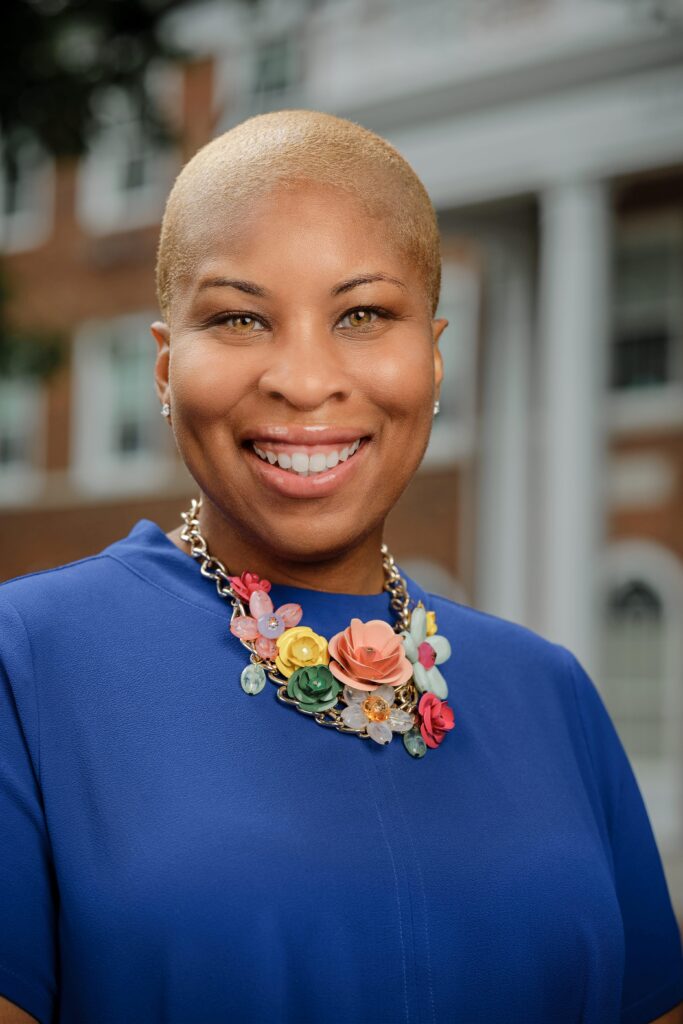 Join us for the keynote address held by Dr. Buffie Longmire-Avital from 12pm-1pm in the Student Center Ballrooms D&E, on April 17th, 2024.
Join us for the keynote address held by Dr. Buffie Longmire-Avital from 12pm-1pm in the Student Center Ballrooms D&E, on April 17th, 2024.
Intentional Design for Including Historically Underrepresented Excluded Minority Students in High Impact Practices
In this keynote address, Dr. Longmire-Avital will share best practices for working with and supporting historically underrepresented minority students (HURMS) engaging in high impact practices. Historically Underrepresented Minority (HURM) students, are members of groups that have, “historically comprised a minority of the US population” (NACME, 2013). Using autoethnography, she will reflect on her own journey as a HURM student and now faculty mentor as she engages her process of documenting and defining what sustainable critically conscious-equity and access looks like. To Dr. Longmire-Avital, it is a synergistic and reparative framework for critically mentoring HURMS that integrates the works of Ladson-Billings and Tate (1995); Hurtado et al., (2015); Weiston-Serdan, (2017); and Yosso, (2005). Central to this emerging framework is her acceptance of the fact that education in the United States is not an equitable system. Educational opportunities are not evenly distributed among students and access has historically, as well as presently, favored persons with racial, gender, and economic privilege. Increasing and sustaining the engagement of HURMS in HIPs must be an intentional act towards dismantling a longstanding system that has forged its credibility and identity on being selective, elite, and elusive. The intentional dismantling act comes in the form of creating and giving space to persons that have historically been denied it. In fact, she argues that these are not historically underrepresented students but historically excluded students and we must engage the act of keeping students in the game, a game that they may not understand how to play effectively yet, a game that was not created with them and their needs in mind, a game that has historically devalued the skills, qualities, and capital they do bring to it. For Dr. Longmire-Avital, the act of giving or generating permanent space for HURMS is a radically reparative one.
Read Dr. Longmire-Avital’s full bio here.
More about the Symposium
Timeline
Student Registration Deadline: March 27th, 2024 (*Extended!*)
Final Registration Form for Judges & Volunteers: Rolling until filled
Posters Printed and Oral Presentation Slides Shared with Our Office:
- Posters: April 12th is the most ideal, April 15th is also acceptable
- Oral Presentation Slides: April 16th
Symposium: April 17th and 18th, 2024
Symposium Schedule OF EVENTS
Wednesday, April 17th
Poster Session #1: 9:30am-11am (Student Center Ballrooms A, B, C)
- Departments Presenting: Applied Math and Satistics, Civil and Environmental Engineering, Economics and Business, Engineering, Design & Society, Geology and Geological Engineering, Geophysics, Humanities, Arts and Social Sciences, Mechanical Engineering, Mining Engineering, Petroleum Engineering
Keynote Lecture by Dr. Buffie Longmire Avital (Lunch Provided): 12-1pm (Student Center Ballrooms D & E) (RSVP Here)
Poster Session #2: 2pm-3:30pm (Student Center Ballrooms A, B, C)
- Departments Presenting: Chemical and Biological Engineering, Chemistry, Computer Science, Electrical Engineering, Metallurgical and Materials Engineering, Physics
Thursday, April 18th
Breakfast Mentor Workshop hosted by Dr. Buffie Longmire-Avital: 9am-10am (Student Center Ballrooms D & E) (RSVP Here)
Oral Session: 12pm-2pm (Student Center Ballrooms A, B, C)
about the symposium
The 2024 Spring Undergraduate Research Symposium will be held in person on Wednesday, April 17th and Thursday, April 18th in the Student Center Ballrooms. Judging will take place during the scheduled Oral and Poster presentations. Refreshments will be provided. All faculty, staff, and students are encouraged to join us in celebrating our hardworking undergraduate researchers and their dedicated mentors!
For further information, please contact the office of Undergraduate Research Scholars at ugresearch@mines.edu
Prepare to Present
Undergraduate Research Scholars has organized several workshops to help you participate in the symposium with as much confidence as possible!
Writing Scientific Abstracts
(Option #1) March 4th, 2-2:50pm, McNeil 214, Register Here
(Option #2) March 12th, 8-8:50am, Zoom, Register Here
With registration for the Mines Undergraduate Research Symposium underway, students are gearing up to craft an abstract describing their research. Despite the concise nature of the abstract, the challenge lies in distilling the essence of complex research into a succinct paragraph. This workshop is tailored to provide participants with a hands-on experience in refining their abstract-writing skills. Through critical examination of sample abstracts, attendees can fine-tune their abilities in crafting accessible and effective abstracts. The session will offer clarity on what elements to include and what to omit, empowering participants to create compelling abstracts that precisely convey the essence of their research.
Designing Scientific Posters
(Option #1) March 25th, 1-1:50pm, McNeil 314, Register Here
(Option #1.5) April 2nd, 5-6pm, Brown 206 (Led by peer Undergraduate Research Ambassadors), Register Here
(Option #2) April 4th, 6-6:50pm, Zoom, Register Here
With your registration for the Mines Undergraduate Research Symposium confirmed, it’s time to enhance your skills in designing and presenting impactful scientific posters. This workshop aims to equip participants with strategies to prepare and showcase their research effectively. The session will delve into the advantages of employing a backward design strategy for poster creation and exploring poster layout principles that enhance readability and engagement with the audience. An interactive component will challenge participants to put their skills to the test by critiquing existing posters.
Presenting Your Scientific Poster
Wednesday, April 10th 5-6pm, Brown Hall 206 (Led by peer Undergraduate Research Ambassadors), Register Here
Delivering Impactful Oral Research Talks
(Option #1) April 10th, 5-6pm, McNeil 313 (Led by peer Undergraduate Research Ambassadors), Register Here
(Option #2) April 11th, 11-11:50am, McNeil 313, Register Here
Ever sat through a research talk that left you captivated, feeling like you were part of a compelling story? A well-delivered research talk shares a striking resemblance to storytelling. In this presentation, we will discuss tips to craft and deliver a research talk that not only conveys information but also engages and resonates with your audience. The talk will explore key aspects, including the art of structuring content, honing presentation skills, and infusing passion into your delivery
information for Judges and volunteers
Who’s eligible to be a judge or volunteer?
We encourage judges and volunteers from all departments to partake in this event. All interested faculty, staff, and graduate students are encouraged to judge and/or volunteer. Undergraduate student presenters are encouraged to present their research in a way that communicates their project effectively regardless of their audience’s background.
What is the time commitment of a judge or volunteer?
It depends. Generally, judging will take an hour to an hour and a half total (or about 15-20 minutes per project). Student presentations are fairly short, but judges may have additional questions before ranking the poster or oral talk. As for volunteers, the time commitment depends on how much time you are able to spare. Our office will need the most help during set-up and clean-up Wednesday and Thursday, times TBA.
How will student projects be evaluated?
Student projects will be evaluated differently depending on the format with which they chose to visually represent their work. Rubrics might ask judges to evaluate qualities such as visual organization, delivery, introduction, methods, conclusions, discussion, and interaction.
What is the judging and volunteer timeline?
TBA
For further information, please contact the office of Undergraduate Research Scholars at ugresearch@mines.edu
Apply here to be a judge or volunteer!
guidelines, tips, & event resources
Tips when writing a scientific abstract
To register to participate in the Spring 2024 Undergraduate Research Symposium, you will need to w
Event Resources
Writing Scientific Abstracts
(Option #1) March 4th, 2-2:50pm, McNeil 214, Register Here
(Option #2) March 12th, 8-8:50am, Zoom, Register Here
With registration for the Mines Undergraduate Research Symposium underway, students are gearing up to craft an abstract describing their research. Despite the concise nature of the abstract, the challenge lies in distilling the essence of complex research into a succinct paragraph. This workshop is tailored to provide participants with a hands-on experience in refining their abstract-writing skills. Through critical examination of sample abstracts, attendees can fine-tune their abilities in crafting accessible and effective abstracts. The session will offer clarity on what elements to include and what to omit, empowering participants to create compelling abstracts that precisely convey the essence of their research.
How to print a poster at Mines
The Office of Undergraduate Research Scholars will cover the cost of the first poster printed by student researchers presenting at the Undergraduate Research Symposium. Though you can order your poster at any time via the HelpDesk ticket system, the deadline to print posters for the spring symposium is 3 to 4 business days before the Symposium (4/11 or 4/12). Please follow the instructions below carefully:
- After you are finished making your poster, save it with a PDF file extension formatted for printing. Poster files should not be larger than 20mb. Prior to submitting a HelpDesk ticket, make sure your poster looks good. We recommend doing a scaled down test print on an 8.5″x11″ sheet of paper to make sure your poster looks presentable, legible, and the color is accurate.
- Once you have completed the final registration form, submit your poster for printing to ITS using the following instructions:
- Follow the link to the HelpDesk ticket for poster printing: ITS Poster Printing Ticket
- Click the orange button, “Request Poster Print”. Fill out, “Name of Project/Poster” with your poster title, “Requestor” with your name, and “Acct/Dept” with “Student”.
- Under “Select Payment Option”, select “Sponsored Group”. Under “Specify the group paying for the poster”, select “Undergraduate Research Symposium”. If you follow these steps, there is no cost to print your first poster. If your poster needs to be reprinted because of a formatting error, you will be responsible to cover the charges for printing it the second time.
- Lastly, under “Date and Time to Pick Up Requested Poster”, please give yourself enough time before the Symposium to pick it up and review it. Under “Poster Paper Widths Available” select the size of your PDF document. Posters should be 48 inches in width (left to right) and 36 inches in height (top to bottom).
- Once you have printed your poster, we encourage you to drop it off at our office (1704 Illinois St. Rm 105) for safe keeping until the Symposium.
Tips when creating a poster presentation
Save your poster with a .pdf file extension. When you create your poster, also consider how you might verbally present your research. How you talk about your research to passersby should compliment your poster. Please view both the “Creating your Poster” and the “Talking About your Research” section of this toggle for general guidance. If you would like to view examples of posters, we encourage you visit our 2021 Virtual Undergraduate Research Symposium Project Gallery or search for additional examples online.
Creating your Poster
- Creating Your Content: When you distill your research into a poster ready format, first and foremost, please speak to your mentor. For additional help, you should consider scheduling an appointment at the Writing Center through their online scheduler. Generally, effective posters include:
- Title that effectively communicates subject matter
- Purpose/objectives clearly stated
- Applicability or relevance of work identified
- Concise explanation of methods/analysis used
- Methods used clearly conveyed
- Conclusions supported by data
- Funding sources acknowledged
- Choosing a Program (to Create Your Poster): There are many programs you can use to create a poster ranging in costs and discoverability. Regardless, make sure the program you’re using allows you to create a custom document size (not to exceed 48 inches wide by 36 inches tall). Many researchers use Microsoft PowerPoint or Publisher because these are inexpensive and easy to use. You can also use more advance programs like Adobe Illustrator or InDesign; but, these can have a steep learning curve and tend to be very expensive. Some free, open source options include LibreOffice, Gimp, or Inkscape.
- Height & Width: Posters printed at Mines should not exceed 48 inches in width (left to right) and 36 inches in height (top to bottom) at 72 – 300 DPI. Posters should be legible form a few feet away.
- Color: It is recommended you choose a lighter color for the poster background, preferably white. There are no other color restrictions for the text and images.
- Font: Make sure the poster title and the author names are clearly identified. Choose a font size such that text on your poster is legible when looked at from a distance. Here is a recommendation for font sizes:
- 85 pt for the title
- 56 pt for the authors
- 36 pt for the subtitles
- 24 pt for the main text
- 18 pt for image captions
- General Principles of Design: Avoid using excessive text as it makes it difficult to follow the poster. Use appropriate graphics wherever possible as they can convey information effectively and make the poster look appealing.
Talking About Your Research
- Length: The length of time you spend talking about your research will vary, but it’s advisable to prepare an elevator pitch to briefly summarize your research. Generally, this is a 1-2 minute summary discussing the most important and interesting parts of your project in a way that anyone can understand.
- Content: How you talk about your research should be planned and practiced. Keep it concise and make sure to touch on the tacit points of your research. Be mindful of your audience and pacing. The best poster presentations invite questions while still breaking down your research for an audience that might know very little about your project. Try answering the question, “What is your research about?” and “Why is it interesting?” in a way that makes sense to researchers and non-researchers alike.
Event Resources
Designing Scientific Posters
(Option #1) March 25th, 1-1:50pm, McNeil 314, Register Here
(Option #1.5) April 2nd, 5-6pm, Brown 206 (Led by peer Undergraduate Research Ambassadors), Register Here
(Option #2) April 4th, 6-6:50pm, Zoom, Register Here
With your registration for the Mines Undergraduate Research Symposium confirmed, it’s time to enhance your skills in designing and presenting impactful scientific posters. This workshop aims to equip participants with strategies to prepare and showcase their research effectively. The session will delve into the advantages of employing a backward design strategy for poster creation and exploring poster layout principles that enhance readability and engagement with the audience. An interactive component will challenge participants to put their skills to the test by critiquing existing posters.
Presenting Your Scientific Poster
Wednesday, April 10th 5-6pm, Brown Hall (Led by peer Undergraduate Research Ambassadors), Register Here
Tips when creating an oral presentation
Oral presentations tend to be a more in depth talks about an individual’s research. All oral presentations in the 2022 Undergraduate Research Symposium require a 10-12 minute live slide presentation. Please view the “Creating your Slides” section of this toggle for guidance. If you would like to view virtual oral presentations, we encourage you visit our 2021 Virtual Undergraduate Research Symposium Project Gallery or search for additional examples online.
Creating your Slides
Overall, presentation slides can contain the same (or similar) information as a poster:
- Creating Your Content: First and foremost, please speak to your mentor regarding content. For additional help, you should consider scheduling an appointment at the Writing Center through their online scheduler.You can also view some tips provided by the University of Pittsburgh here, or some tips from the CLIMB Program, here. Some general guidelines when preparing your presentation is to make sure:
- The title effectively communicates subject matter.
- Purpose/objectives are clearly stated.
- Applicability or relevance of work is identified.
- Concise explanation of methods/analysis are used.
- Methods used are clearly conveyed.
- Conclusions are supported by data.
- Funding sources are acknowledged.
- Choosing a Program (to Create Your Presentation): Some common programs include Google Slides or PowerPoint. It doesn’t matter what you choose. PowerPoint tends to be a little more versatile in options. For an introduction to Google Slides, please follow this link. For more information about Microsoft PowerPoint, please follow this link.
- Length of Presentation: Rather than giving a limit on file size or slide number, we recommend that presentation be about 10-12 minutes when you go through the slides aloud. Try not to overwhelm the audience with too many slides; but, make sure you’re engaging them with visual aids.
- General Principles of Design: Similar to creating a poster, be mindful that an audience may lose interest in long presentations that are text heavy. Use appropriate graphics wherever possible as they can convey information effectively and make the presentation look appealing. Be mindful of color, font size, and image resolution. Sometimes, it can be helpful to find a presentation you like and try to emulate that style.
Event Resources
Delivering Impactful Oral Research Talks
(Option #1) April 10th, 5-6pm, McNeil 313 (Led by peer Undergraduate Research Ambassadors), Register Here
(Option #2) April 11th, 11-11:50am, McNeil 313, Register Here
Ever sat through a research talk that left you captivated, feeling like you were part of a compelling story? A well-delivered research talk shares a striking resemblance to storytelling. In this presentation, we will discuss tips to craft and deliver a research talk that not only conveys information but also engages and resonates with your audience. The talk will explore key aspects, including the art of structuring content, honing presentation skills, and infusing passion into your delivery.
Myth Busters!
I have to have completed my research and collected all my data before presenting in the Undergraduate Research Symposium
False! You can participate in the Undergraduate Research Symposium even if your research is still in progress. When discussing the results of your research, share whatever data you do have, and consider discussing expected results.
The Undergraduate Research Symposium is only for very accomplished, upper-classmen undergraduate researchers
False! Any undergraduate student who has conducted research is more than welcome to present during the Undergraduate Research Symposium. It’s never too early to have this valuable experience.
Presenting at the Undergraduate Research Symposium will not benefit me
False! Presenting at the symposium is a valuable opportunity to develop your professional communication skills and can be discussed to your advantage on your resume or in a job interview!


